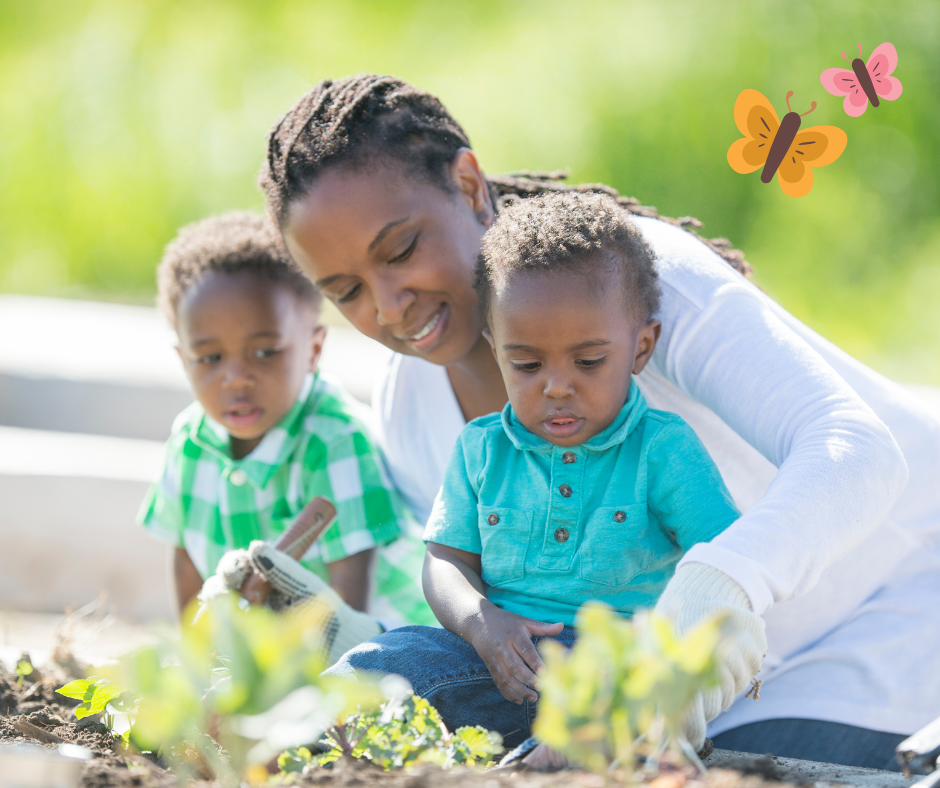The only thing that tastes better than produce picked straight from your own backyard, courtyard or balcony, is the knowledge that the only cost has been for the plants and the pride that comes from having grown it yourself!
Growing your own fruit and vegetables can be a fun and exciting project to do with the kids, teaching them about health and sustainablity. Spring is the ideal time to get planting, with plenty of vegetables, herbs and fruit trees ready to go in the ground now for harvests right through to next winter.
Where to plant a veggie garden
The success of any vegetable garden is location, location, location! The good news is, you don’t need a garden – fruit, vegetables, and herbs can be grown in pots in courtyards and even balconies. Some suburbs even have local community planter boxes!
The ideal site offers at least 6 hours of direct sunlight, reliable drainage, and easy access to water. A flat area with minimal tree roots and some shelter from strong winds will give your veggies the best chance to thrive. In Victoria, a north- or west-facing position provides the strongest sun exposure, with taller crops placed to the south so they don’t shade out smaller plants.
Key Factors to Keep in Mind
Sunlight:
- Fruiting crops like tomatoes, zucchinis and cucumbers need a full day of sun—around 8 hours or more.
- Leafy greens and root vegetables cope well with partial shade.
Drainage
- Avoid soggy soils—waterlogged roots can quickly lead to plant stress or disease.
Level Ground:
- A flat surface makes digging, planting, and irrigation more straightforward.
Wind Protection:
- Strong winds strip moisture from leaves. Use hedges, fences or screens to reduce exposure.
Root Competition:
- Steer clear of large trees and shrubs that compete with your veggies for nutrients and water.
Options for Less-Than-Perfect Spaces
- Container gardening: Pots and tubs can be shifted around to chase the sun.
- Shade-friendly crops: Lettuces, spinach and kale grow happily in cooler, lower-light spots
- Soil fixes: Raised beds and organic matter can improve drainage and fertility where conditions aren’t ideal.
Preparing the soil
If you’re planting in an existing garden bed or planter, start by trimming back overgrowth, pulling out weeds, and clearing away any leftover debris from winter. Once the beds are tidy, or if you are planting in pots, give your soil a boost with nutrient-rich compost and a generous layer of mulch.
Compost is great for:
- Reviving tired, established garden beds
- Building up soil structure in new gardens
- Locking in precious moisture
In Melbourne’s unpredictable climate, mulch is non-negotiable. Beyond keeping your garden neat, it works hard to protect your plants by:
- Shielding roots from frost and extreme heat
- Holding onto soil moisture through hot, dry days
- Enriching the soil as it breaks down
- Helping prevent erosion and keeping weeds at bay
What to plant in spring
Vegetables:
- Root crops: beetroot, carrots, onions, parsnips, radishes
- Leafy greens: cabbages, cauliflowers, lettuces, pak choi, rocket, silverbeet, endives, celery, leeks, spring onions
- Legumes: peas, snow peas
- Warm-season crops: capsicums, cucumbers, eggplants, sweet corn, tomatoes
- Others: broccoli, strawberries
Hold off a little longer on tomatoes—a general rule of (green) thumb is they grow best when planted after Melbourne Cup Day.
Herbs:
- Chives, dill, mint, oregano, parsley, sage, thyme
- Coriander (loves the cool spring air but tends to bolt in the summer heat)
Hold off a little longer on basil—it thrives once the soil and air are consistently warm, but struggles in the lingering cold of early spring.
Fruit trees:
- Deciduous trees (apples, pears, peaches, plums) are best planted early in the season, often bought bare-rooted.
- Evergreen trees (lemons, oranges, kumquats) prefer slightly warmer soil, so wait until later in spring before planting.
Pests!
To protect your Melbourne veggie garden from bugs and other pests, you can use physical barriers like nets or row covers, and try homemade organic sprays with garlic and chilli. Remember to maintain healthy soil to grow resilient plants.






0 Comments